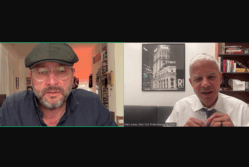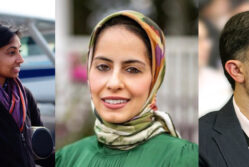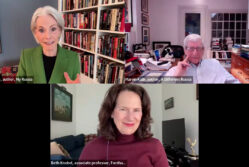
Tonight: Book Night With Gregory Johnsen
by Sonya K. Fry
The Last Refuge: Yemen, Al-Qaeda, and America’s War in Arabia [W.W. Norton & Company, November, 2012] is an eye-opening look at the successes and failures in fighting a new type of war in the turbulent country of Yemen, written by Gregory D. Johnsen, who is an OPC Foundation Scholar, a Fulbright fellow in Yemen, part of a 2009 USAID conflict assessment team and is now a doctoral candidate in Near Eastern studies at Princeton University.
Johnsen takes readers into Yemeni mosques where clerics in the 1980’s recruited young men to jihad to fight the Russian invaders in Afghanistan. These men eventually formed the basis for the Al-Qaeda movement. The story also leads to the presidential palace in Yemen where the country’s military dictator, Ali Abdullah Salih vascillated between helping the U.S. get rid of Al-Qaeda in the Arabian Peninsula and hindering the process. Salih himself called this delicate balancing act of staying in power a “snake dance.” For years this dance included concealing Islamists from the prying eyes of U.S. intelligence and yet later he allowed the U.S. to conduct attacks that killed dozens of Al-Qaeda operatives including Abu Ali al-Harithi, who was known as the “godfather” by U.S. intelligence. The dramatic story sounds like a Hollywood movie: Haritihi turned on his cell phone as he left a secret meeting which signaled a predator drone to track him. The first missile from the drone exploded next to Harithi’s speeding car. He threw the phone out of the window and screamed at everyone to get out, but there was nowhere to go since they were in the middle of the desert. The drone fired its second missile and the car exploded in flames.
Less than four years after Harithi’s death and the destruction of the original Al-Qaeda network in Yemen, the group rebounded as 23 men tunneled out of a maximum-security prison in Sana’a and into a neighboring mosque where they said their morning prayers and then walked out the front door to freedom. Johnsen’s crisp storytelling brings events to life and shows how a handful of men thousands of miles from the United States and far from the battlefields of Iraq and Afghanistan continue to keep policymakers up at night fighting a clandestine war of drones and suicide bombers in an unforgiving corner of Arabia.
In 2006, Johnsen won an OPC Foundation’s David Schweisberg scholarship while he was a student at the University of Arizona. His winning essay was on presidential politics in Yemen’s fledgling democracy. His stories on Yemen have appeared in The New York Times, Foreign Policy and Newsweek and he is a frequent guest on NPR and CNN.
William J. Holstein, president of the OPC Foundation, will serve as interlocutor for the Book Night on Monday, November 12. The reception will start at 6 p.m. with the talk at 6:30 p.m. Books will be available for purchase and signing. RSVP by calling the OPC at 212-626-9220 or e-mail.



